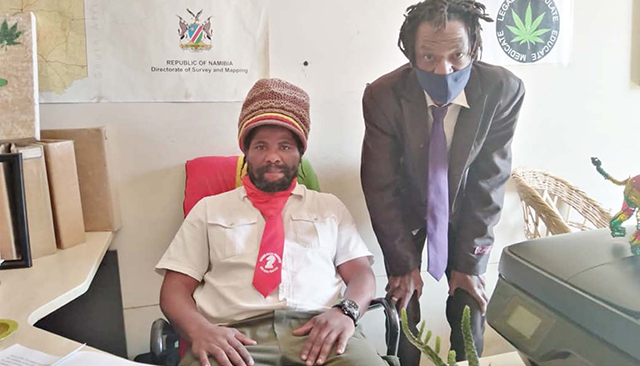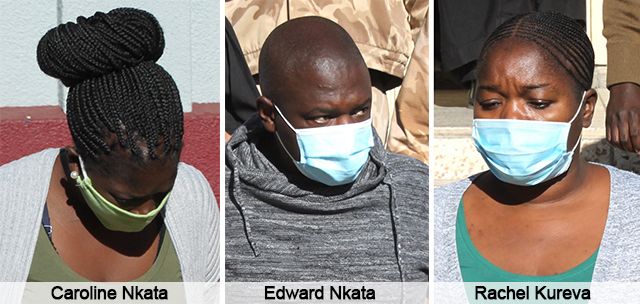CHARLOTTE NAMBADJATHE advocacy organisation Ganja Users of Namibia (GUN) claims law-enforcement agencies in the country are biased in their treatment of individuals arrested for possession of or dealing in cannabis.
GUN secretary general Borro Ndungula, during a press conference last week in Windhoek claimed the police inflate the value of dagga to allow for stiffer court sentences for offenders.
He questioned the methods used by the police to determine the value of confiscated ganja, saying they do not consider the street value of the drug.
“It is disappointing that our media likes to report higher drug figures without asking proper questions as to how the police arrive at that conclusion,” Ndungula said.
He said the police and prosecutors have a strong incentive to inflate the weight and value of dagga confiscated to justify higher amounts of bail to be paid by accused individuals.
“What cannabis value do police use in courts: street values or wholesale values? Why are some shops allowed to sell cannabis products, but locals get arrested for it?” he asked.
“You are likely to come across news about dagga confiscated worth [dollar]ranging from three to five million,” he said.
Ndungula said two GUN members were arrested in July for dealing in 1 kg of ganja, adding the police claimed it had a street value of N$50 000.
The two members were denied bail by the court and the state opposed their release due to the seriousness of the offence and the value of the amount they were in possession of.
“How can 1 kg of cannabis be worth N$50,000, while 3,9 kg is valued at N$39 850?” Ndungula asked.
“Why is 100 kg of cannabis calculated to be worth N$1 million, while 250 kg is valued at N$759 630? . . . Why is a man sentenced to two years in prison for 10 kg of cannabis?” he asked. He further claimed police officers are eligible for promotion when they inflate the value of cannabis, adding that their valuation also differs according to the perpetrator’s race, social and economic status. He said officers are especially biased towards Rastafarian people.
GUN president Brian Jaftha was arrested on 24 April 2019 in possession of 97 g of cannabis valued at N$1 940, Ndungula said.
On 2 August 2019 he was again arrested for cannabis possession, this time for 539 g valued at N$2 100.
The inconsistencies in valuation are unfair, he said.
GUN also presented a report of cannabis arrests where individuals were allegedly charged differently for the same amount of the drug upon arrest.
Ndungula claimed some accused are charged with possession only, and not dealing “if the police officer likes you”.
Jaftha said the organisation has sent a letter to police chief inspector general Sebastian Ndeitunga and met with Khomas regional police commander, commissioner Joseph Shikongo on the matter, and are awaiting a new parliamentary committee to be appointed to pursue the legalisation of dagga in the country.
Shikongo yesterday confirmed meeting with Ndungula two weeks ago.
“It is not right for police officers to price cannabis differently based on favouritism,” he said.
“All cannabis should be weighted the same for all people found in possession of it,” he said.
Shikongo, however, said GUN members should remember the drug is still illegal in Namibia, “whether it is measured in small or big quantities”. He advised GUN members to take their grievances to court.
Stay informed with The Namibian – your source for credible journalism. Get in-depth reporting and opinions for
only N$85 a month. Invest in journalism, invest in democracy –
Subscribe Now!










